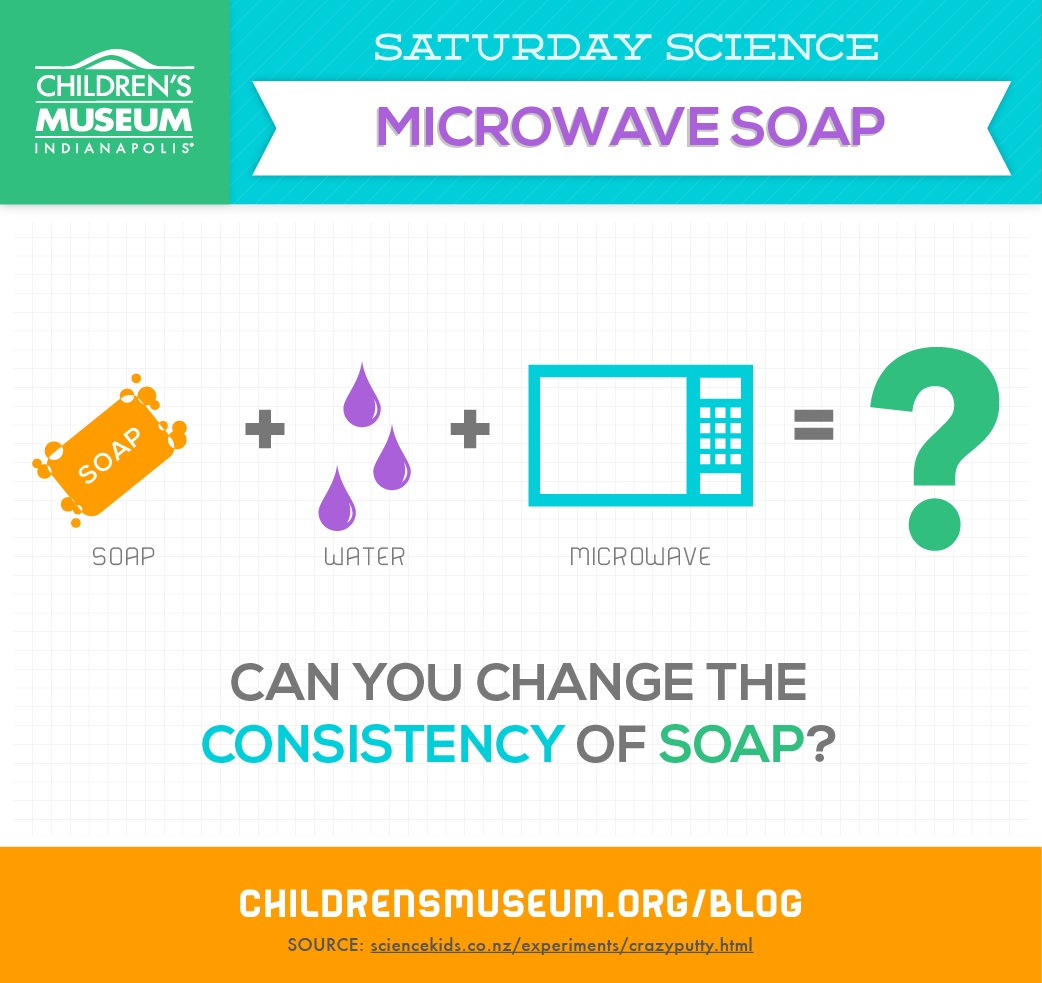
Soap is a pretty useful thing. Without it we’d be a lot dirtier and a lot smellier. If you’ve ever lost track of the soap in the bathtub you know what a pain it can be to find it again because it sinks to the bottom and slips around in the water when you try to reach for it. There’s one special kind of soap, though, called Ivory Soap, that floats! They mix air in with the soap so it doesn’t sink! That air also allows us to do a really neat (and kind of messy) experiment with Ivory Soap that will teach us a little something about the properties of matter. Make sure you have Ivory Soap because it’s the only one that works with this!
Materials
- A bar of Ivory Soap
- A microwave-safe plate or dish
- A microwave
Process
- Open the bar of soap and place it on your plate.
- Pop the plate in the microwave.
- Set the microwave for about a minute and a half on high.
- Step back and watch what happens!
Summary
Make sure that you let the soap cool for a while before you take it out of the microwave. Once it’s cool enough, you can feel it. What does it feel like? Is it hard? Soft? Bubbly?
The reason that Ivory soap expands into a big foamy mess has to do with that air they mix in to let it float. Air is a state of matter called a gas. A bar of soap is a state of matter called a solid. The third state of matter is a liquid, like water or juice. Matter takes different states because the tiny pieces that it’s made of, called atoms and molecules, are moving at different speeds. In gasses, like air, they zip around quickly and move all over the place. In liquids, they slide past each other. In solids, they’re really tightly bound together and so they just kind of vibrate in place.
When you add heat to any kind of matter, that new energy makes the atoms and molecules move faster. Molecules in a solid vibrate harder. In a liquid, they start moving further and faster. When you add enough energy to a solid, those tight bonds break and the molecules start flowing past each other as a liquid. When you add enough energy to a liquid, the molecules start doing their own things and flying every which way and you get a gas. Think of water going from ice (solid) to regular water (liquid) to steam (gas) as it gets hotter.
Since the molecules are moving more and moving further when you add heat, whatever you’re heating up actually expands and gets bigger the warmer it gets! Since gas molecules are already going all over the place, new energy makes a gas expand a whole lot more than a solid. So when you heated up the Ivory Soap, both the solid soap and the air bubbles inside started to expand, but the air bubbles expanded way more than the soap, which caused it to foam up into a giant soap monster!
Want more Saturday Science? See all of our at-home activities on the blog or on Pinterest.

 (
(










